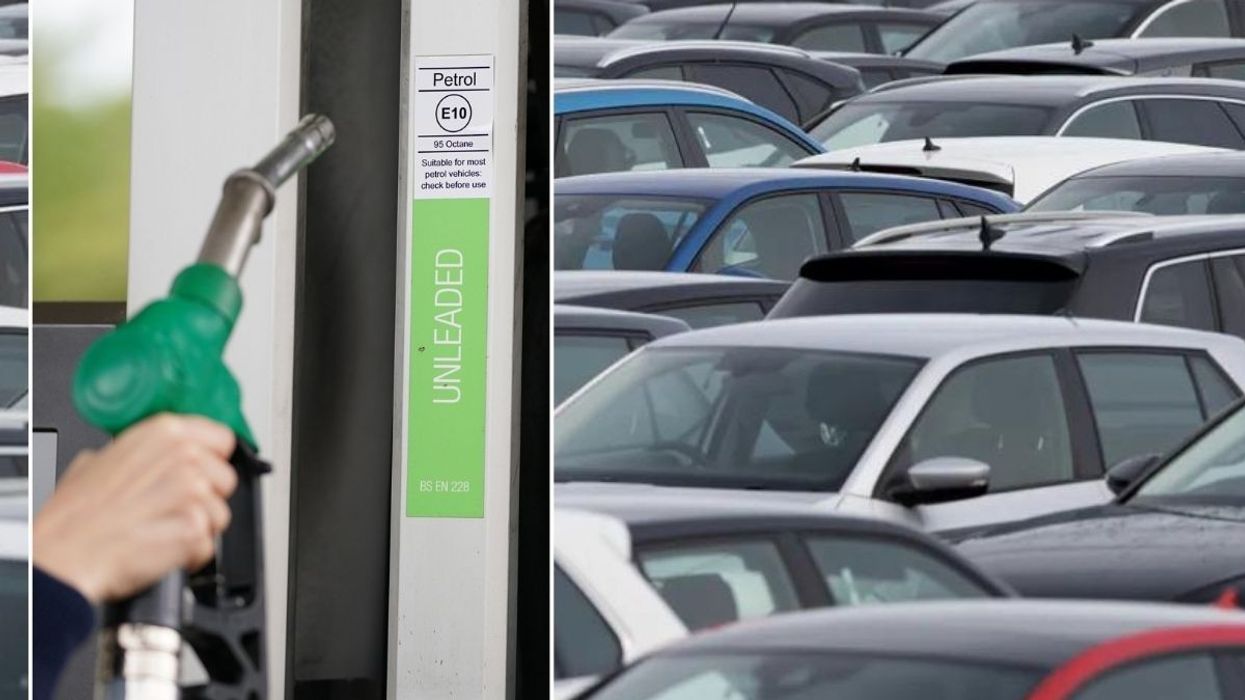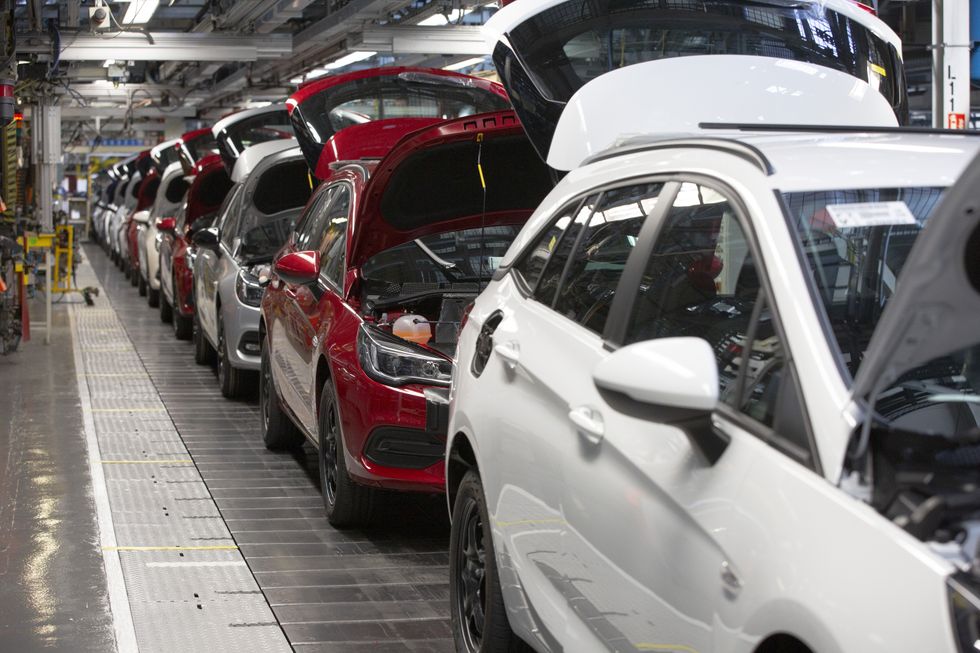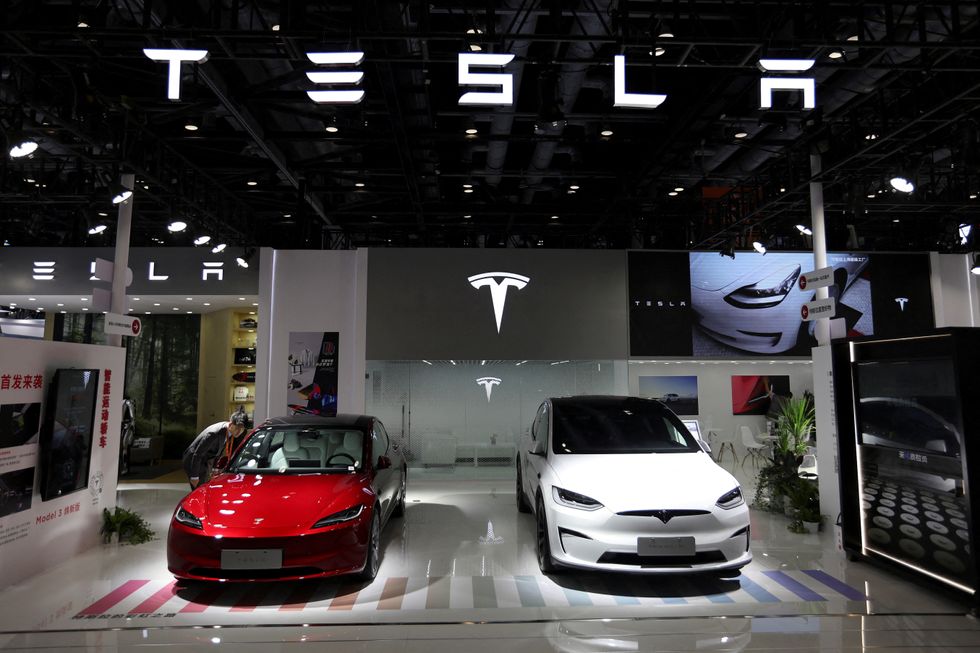Petrol and hybrid vehicles being 'restricted' as major car brands fear huge fines from net zero rules

Petrol cars still have the largest market share in the UK
|PA/GETTY

Manufacturers must have a minimum of 22 per cent of total sales come from zero emission vehicles by the end of the year
Don't Miss
Most Read
A leading motoring expert has claimed that major car manufacturers are hoarding sales of petrol and hybrid vehicles to avoid fines from the Zero Emission Vehicle mandate.
The ZEV mandate details how manufacturers need to produce a minimum percentage of zero emission vehicles every year to meet net zero goals ahead of the 2035 ban on the sale of new petrol and diesel vehicles.
By the end of the year, car brands will need to have 22 per cent of total sales come from zero emission vehicles, followed by an 80 per cent benchmark in 2030 and 100 per cent five years later.
Robert Forrester, chief executive of Vertu Motors, claimed that manufacturers were delaying the deliveries of cars until next year over fears they could be hit with fines.
Do you have a story you'd like to share? Get in touch by emailing motoring@gbnews.uk

The 2030 deadline to ban new petrol and diesel cars could be reinstated soon
| GETTYBrands could be slapped with fines worth £15,000 per vehicle that exceeds the quota, leading to certain brands which focus on petrol and diesel cars to fall behind.
While there is a threat of fines, experts predict that no one will be hit with penalties since brands are able to buy and sell credits to meet targets.
The likes of Tesla and Polestar will have a far higher number of credits to trade since they do not produce petrol and diesel vehicles, meaning their quotas are constantly at 100 per cent.
Forrester said: "In some franchises there’s a restriction on supply of petrol cars and hybrid cars, which is actually where the demand is.
“It’s almost as if we can’t supply the cars that people want, but we’ve got plenty of the cars that maybe they don’t want," he told The Telegraph.
He noted that manufacturers were "constraining the ability" of dealers to supply petrol cars for people who do not yet want to switch to an electric vehicle.
According to the latest data from the Society of Motor Manufacturers and Traders, the UK car market was boosted by 2.5 per cent in July to deliver 24 consecutive months of growth.
Battery electric vehicles were found to outpace the overall market (18.8 percent), although this is still behind the trajectory mandated by the government.
A total of 27,335 electric cars were sold in July - enough for 18.5 per cent of the total market share. The data shows how electric vehicles are the second most popular fuel type for new vehicles, although petrol remains the most popular with 52.1 per cent of the share.
Some brands have also questioned the impact of the Zero Emission Vehicle mandate, including Stellantis, which said the impact of the regulations could force them to end UK production because of a lack of Government support.
A further issue for manufacturers could be the uncertainty around when the sale of new internal combustion engine vehicles will be banned. Labour has pledged to reinstate the original 2030 deadline "in due course".
At present, the deadline to ban new ICE sales is 2035, with the Government stating that a decision will be made soon. Despite this, a spokesperson told GB News that it remains committed to supporting manufacturers.
LATEST DEVELOPMENTS:

Tesla is able to trade ZEV mandate credits as it only produces electric vehicles
| REUTERSForrester concluded: "What the Government’s actually doing is constraining the new car market, which has a big impact on VAT receipts for them, and creates a business environment in the UK where manufacturers may question whether they want to make cars here.
“As Carlos Tavares [chief executive of Stellantis] has said, why should they sell cars at a loss because of UK government policy? The new car market is no longer a market, unfortunately. It’s a state-imposed supply chain.”










